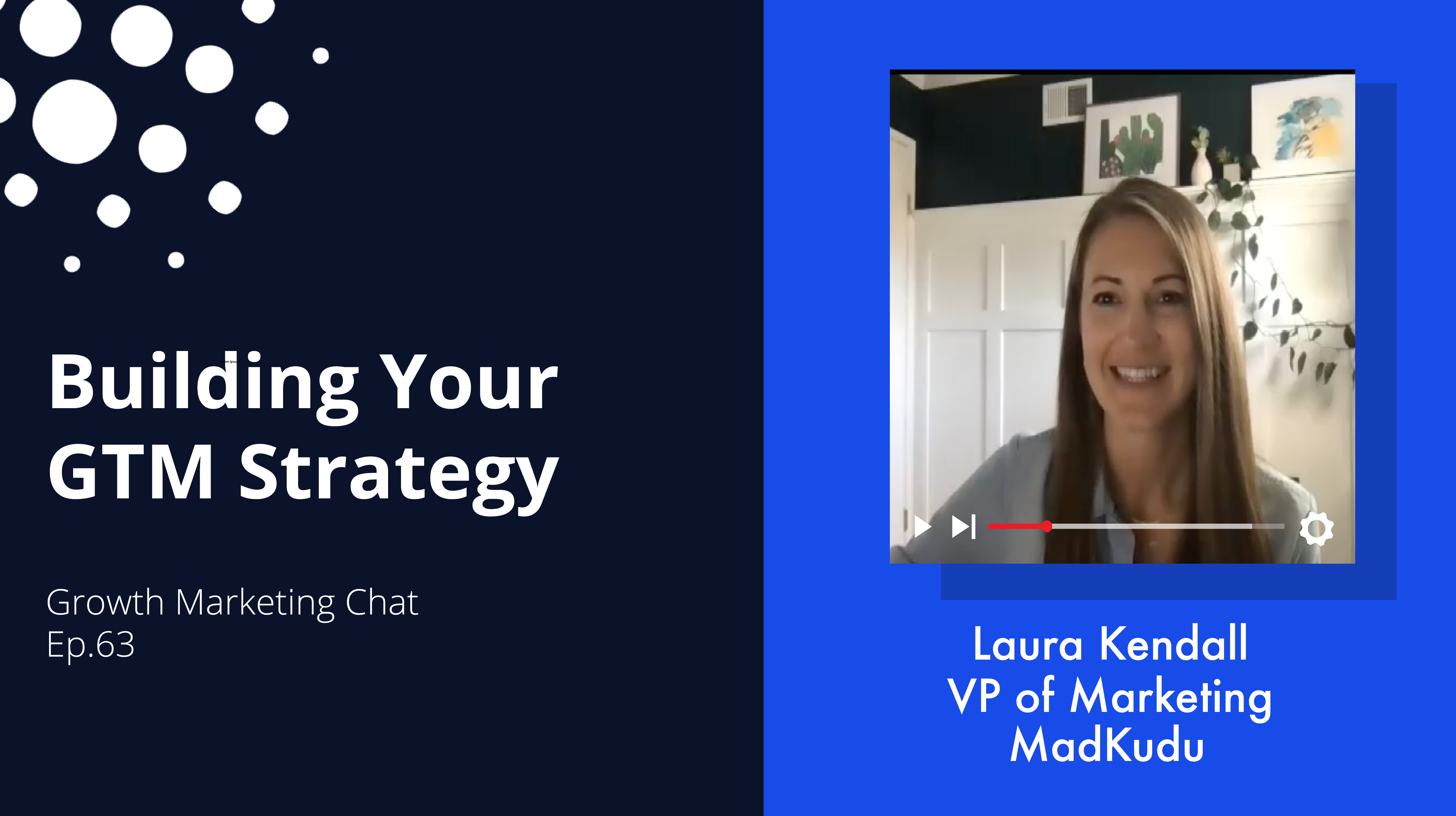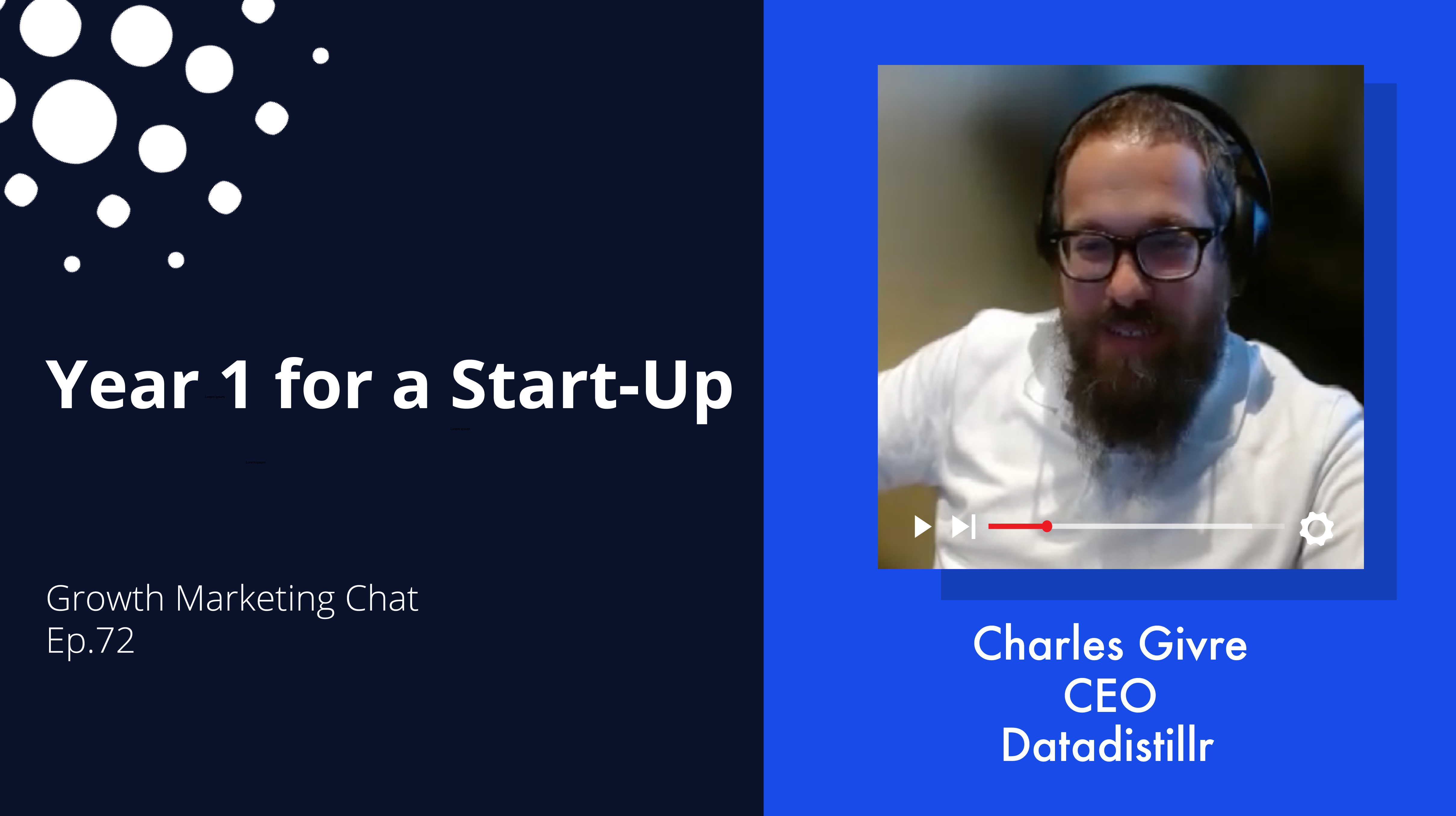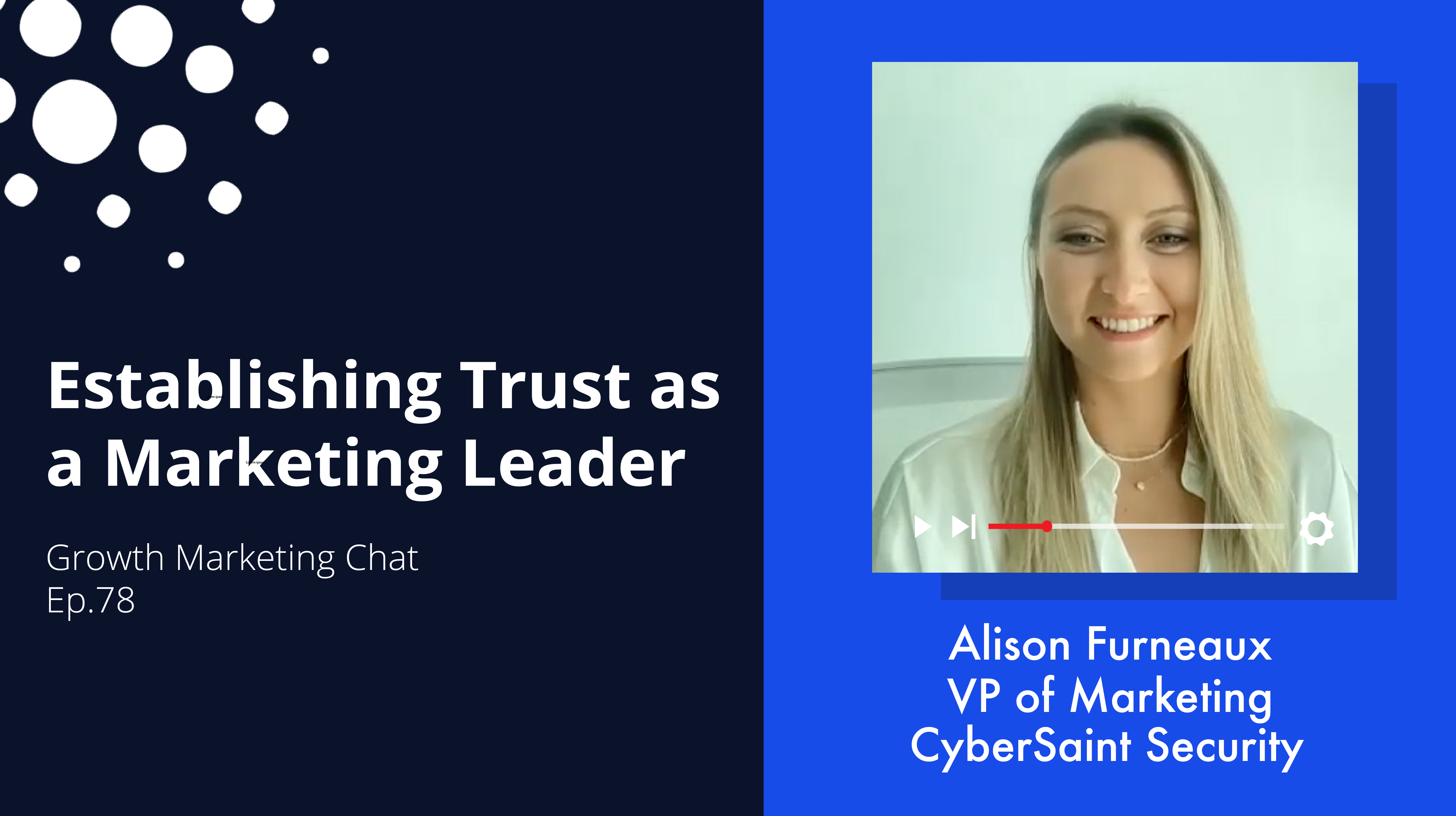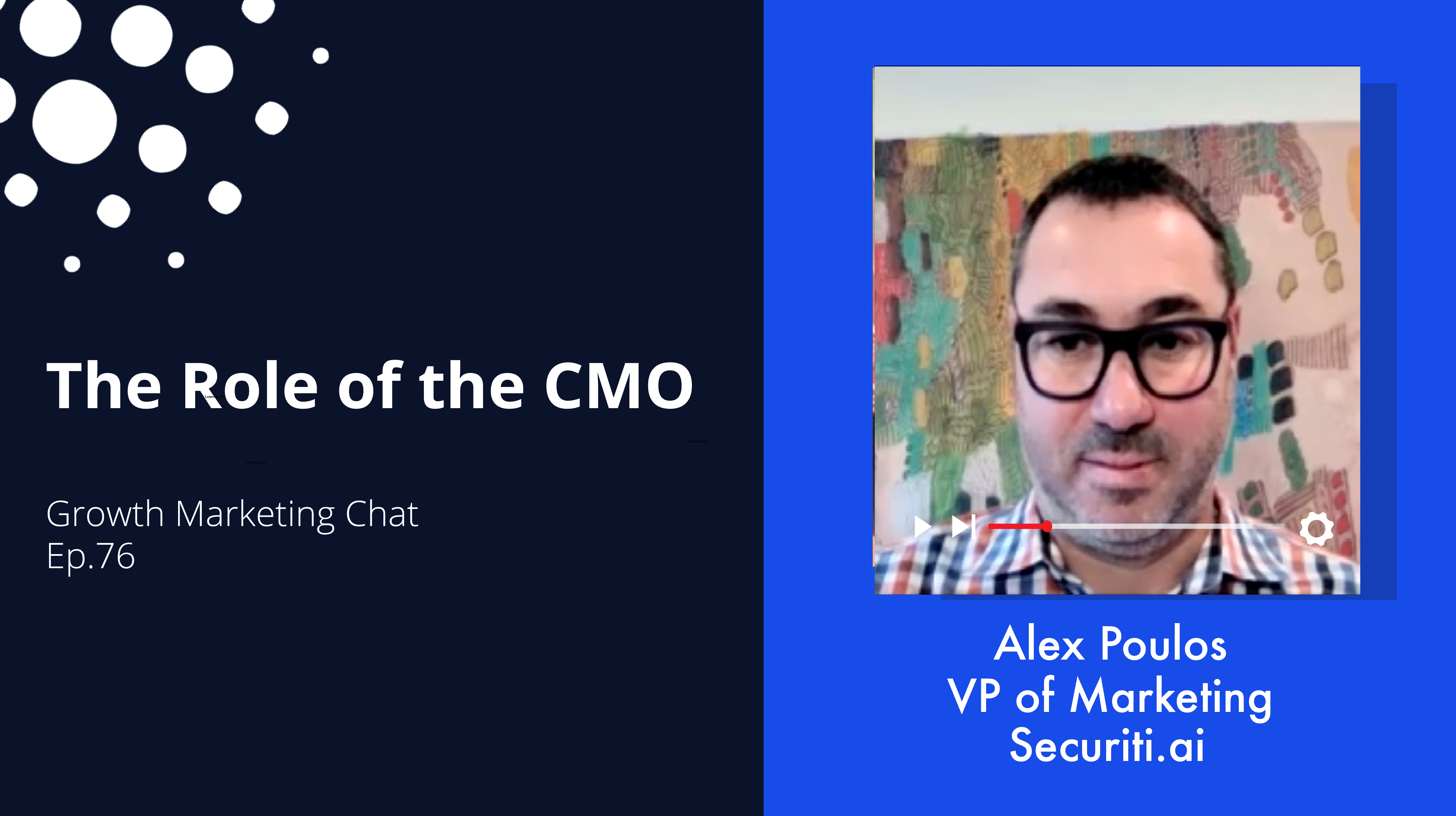You can’t be truly successful long-term if you don’t plan for the short-term. But the reverse is also true. Growth marketing is a balancing act.
Short-term strategies could include driving a certain amount of revenue in the next 6 months, or acquiring a specific number of new leads through your demand gen efforts before the end of the year.
On the other hand, a long-term stategy could be focused on developing a strong, cohesive brand that sticks out from the competition in the crowded marketplace.
Short vs. Long-Term Growth Marketing Strategies: Find Your Balance
The balance between short and long-term strategies in growth marketing is unique to every organization based on its goals, business model and other factors. So, how do you find your balance?
Ryan Born, CEO of Cloud Campaign, shares a few ideas. In this episode of Growth Marketing Chat, he discusses:
- When, why and how to invest in long-term marketing strategies
- Setting goals and determining tactics for the short-term that will benefit the long-term play
- Setting expectations and aligning your team on all strategies
Tune in to find out if you’re taking the right steps today to be successful a year from now.
Video Transcript:
CAROLINE: Hi, welcome to growth marketing chat. Today I'm here with Ryan Born. He's the co-founder and CEO of Cloud Campaign. Ryan, thank you so much for being with me today.
RYAN: Of course. Thanks so much for having me. I'm excited to be here.
CAROLINE: Yeah. So before we get started, can you tell us, a little bit more about Cloud Campaign, you know, what do you guys do? When did you start all of that good stuff?
RYAN: Sure. Yeah. So Cloud Campaign is a digital platform that allows marketing agencies manage more clients on social media with a leaner team. We've been around since 2017. We were bootstrapped for the first couple of years and then decided to raise VC funding back in 2019. We most recently closed our series 'A'. We currently work with around 720 marketing agencies. So I have a pretty good kind of read from the general market in terms of what works well and what doesn't from a marketing standpoint. But yeah, we're really excited to be here.
CAROLINE: Awesome. Well, I'm really excited to be chatting today. And so currently your overseeing most of the marketing for your company, correct?
RYAN: Yep. That's correct.
CAROLINE: So that's, that's really exciting to have that kind of conversation because it's quite rare that we can meet CEO's that really understands all the ins and outs. So.... I'd really like to understand how you build marketing strategies and how you approach kind of, especially in startup environment. It's really important to have kind of short term strategies to bring short-term results and then a long-term strategy to position you for success in the long run. Right? So what's your approach to that?
RYAN: It's a great question. And I think given the size of where we're at right now, this is something that we're really focusing on and spent a lot of time on it over the past six months. So It's kind of for free time for this question for us, you know, near term strategies, the way we look at them is how are we going to drive revenue and hit our revenue goals in the next six months? So a lot of those strategies are really focused kind of bottom of the funnel where hopefully the prospect that we're marketing to already knows that they need to purchase a tool like ours.
And they're part they're already in that kind of buyer's journey. And they're looking for a solution and we're really focused on how do we get in front of as quickly as possible, and then run them through a quick demo and get them to actually convert certain things as money. Versus long-term strategies, you know, it's a bit harder because you're not necessarily going to see the results right away. A lot of times you're making some sort of leap of faith that you are making the right bet. And you probably won't see results for six to 12 to 24 months, right? Like, it might take awhile. And you know, for us, again, like we're kind of this space now where like we have steady revenue growth, we're hitting all of our close near term benchmarks, but we realized for us to become a much larger software company, we need to have kind of step function growth, right? Like we can't just do linear anymore.
We need to like figure out some new channels. We need to find ways to build a brand and really build up that kind of organic presence. And in order to do that, we need to take long-term strategies. And so the way we look at it again is short term is how do we hit our revenue goals in the next six months? Long-term is how do we open up kind of new channels of growth and position ourselves for success in one to two to three years. Where the kind of effort that we're putting in today into brand building and building up the top of the funnel and generating a lot of like top of funnel, they follow leads. We won't see those results for at least twelve months, but we know that, you know, in order for us to kind of hit our revenue goals, you know, a few years out, these are kind of actions that we need to take today to set us up for success in the future.
CAROLINE: Yeah. Yeah. So, so you mentioned something about, it's like now you, you have that linear growth and you want to like take it to the next level and this is how you decided, okay. Now it's time to invest in.... long term strategy. Did I get that right?
RYAN: Exactly. Yep.
CAROLINE: Okay. So... you know, for a lot of, for a lot of entrepreneurs, it's kind of a struggle to figure out like when is the right time, right, to invest in the long-term strategies, because you don't want to do it too early because you're not going to see the results for a few years. So how do you, how do you approach that?
RYAN: It's such a great question because that is a struggle is finding that right time and the right balance because there is this existential crisis that exists with small businesses with startups, where if we don't grow revenue quick enough in the near term, there will never be a longterm, right? Like with Google it took two years... to see those results.
And so you don't want to start these long-term marketing initiatives too early because it's likely wasted, or it could be, it could be wasted effort if you don't also drive the near term results. And so for us, you know, we waited until we found kind of stability in the business. You know, we have a very predictable, predictable revenue model in marketing, advertising models as well. We're like we know $1 in equals $8 out and that's at the bottom of the funnel, that's near term marketing. And so we'll continue to drive that and reinvest our revenue into that. But now we have a little bit of extra cashflow that we're trying to figure out, where do we invest this extra money?Now we don't necessarily need it to stay alive.
And so now we can start to think a bit more strategic, think a bit more long-term and reinvest this money and these new initiatives that will be step functions for us that will hopefully grow, help us grow in the future. So yeah, for us, it was really first getting to a point where we felt, okay, the business is really stable. We're not at risk of running out of money or going out of business anytime soon, now started to like lift our heads up a little bit and start to think a bit more long-term more strategic.
CAROLINE: Got it. Got it. And so can you talk to us a little bit about the transition from going from having a very like bottom of the funnel strategy only very like short term to medium term towards like building a longer term strategy and especially how do you transition your team into that mindset?
RYAN: There's a couple of different parts to it as you kind of alluded to. I mean, one part of it is just changing the raw strategy. I mean, the other part is setting proper expectations across the entire company, right? Like marketing influences a lot of other departments within the company and sales a lot of times is relying on marketing if they're relying on inbound leads. And so you need to make sure that you have buy-in across all departments. You need to make sure that all the key stakeholders understand and believe in this vision, that it's time to transition some of our effort to being a bit more long-term focus.
And these are the results that we're going to see, or like these are kind of the projected side effects of taking this action. And in order to like, make that transition and transition successfully, you know, sometimes you do need to develop a bit of a different team. So like we're in the process now we just hired a content marketer. That's solely going to be focused on top and middle of the funnel. So we've found ways to successfully generate, you know, high volume of leads at a really low cost that are at the top of the funnel. And after the next step is how do we nurture them and entertain them and kind of incubate them until they are ready for that hand raise event where they say, yes, I'm ready to purchase your product. I'm aware of what it is. I know why I need it. And now put me in front of the sales person so I can purchase it. Right?
And so you need to make sure you have kind of structured around that, that incubation education phase, you know, otherwise you're just getting a lot of leads at the top of the funnel and then they're exiting right out the other way, because they're not working their way through the funnel of learning about what it is that you have to offer.
CAROLINE: We see this all the time. I literally just posted about this yesterday on LinkedIn.
RYAN: Yeah it's a serious problem. And like, it's one of the hard transitions of moving from really focused on near term goals and objectives to having a bit of a longer term outlook because like right now we're just focused on how do we collect as many leads for people that want to demo and will close later this week and give us their credit card. You know, you don't need necessarily this whole, like all bunk nurture program for those types of leads, just because it's such a quick sales process, but now that we're moving towards this longer term model, like it requires different, different marketers. Like we're building out our team now to then support this new function.
CAROLINE: All right. Great. Well, that was great. I think we touched on so much and I know it's really a topic that is top of mind for a lot of people. So thank you so much for sharing your insight there, that was really, really great. Thank you.
RYAN: Yeah, of course. Thanks so much for having me, Caroline.
CAROLINE: Yeah.





